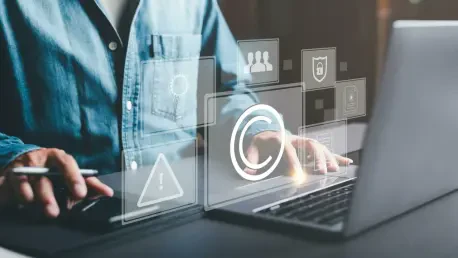A significant legal confrontation is unfolding as celebrated authors challenge Meta over the alleged unauthorized use of their copyrighted material to train artificial intelligence algorithms. This pivotal case, presided over by Judge Vince Chhabria in the Northern District of California, is set to redefine boundaries between technological progress and intellectual property rights. The dispute has drawn widespread attention for its potential to influence the future of copyright law amidst rapid advancements in AI, underscoring the tension between ethical considerations and digital innovation.
Unveiling the Legal Battle: The Essentials
The clash between authors and Meta represents a watershed moment in copyright law, introducing complexities in the digital age as AI technology evolves. At its core, the case interrogates the legality of using copyrighted material without explicit permission for developing AI models. The implications extend beyond individual grievances, touching on broader themes such as the ethical dimensions of AI usage and the regulatory requirements for technological advancements. As both parties seek summary judgment, the court’s decision may create a precedent for future interactions among authors, tech companies, and regulators.
Decoding the Day’s Highlights: Discussions and Insights
The courtroom was a hub of activity as debates unfolded on crucial issues like copyright infringement amid AI progress. Both sides presented compelling arguments regarding the fair use of data and the long-term impact on content-based professions. Experts contributed significant insights, emphasizing the urgent need for clear guidelines to balance creativity and innovation with rights protection. Themes of ethical responsibility and adaptive legal structures resonated strongly throughout discussions, highlighting the nuances of employing AI technology while safeguarding intellectual property.
Crucial Conversations: Expert Insights on AI and Copyright
Expert testimony delved into the intricacies of AI and copyright, revealing diverse perspectives on the legal use of existing content. Participants highlighted the transformative potential of AI in various industries, while also voicing concerns about the ethical responsibility of technology developers and the limits of fair use. The discourse bridged technology with regulatory frameworks, presenting an opportunity to rethink existing legal protocols in the wake of technological advancement.
The Pulse of Debate: Themes from Panel Discussions
Panel discussions gathered a mix of legal experts, authors, and tech innovators to explore contentious themes such as copyright protection versus digital innovation. Debates centered on the scope and necessity of existing laws in governing AI activities, with varying opinions on the appropriateness of current legal standards. The exchange of ideas portrayed a vivid picture of the challenges and opportunities presented by AI in reshaping traditional notions of intellectual property rights.
Interactive Learning: Workshops and Activities
Workshops facilitated hands-on experiences, allowing participants to engage with AI technologies close to real-world applications. Sessions included lively debates on ethical considerations, promoting a learning environment where attendees reflected on the profound impacts AI might have on copyright law. These activities highlighted the indispensable need for technological transparency and accountability as part of future guidelines.
Pioneering Technology: Innovations on Display
The event featured cutting-edge demonstrations showcasing the latest AI capabilities, capturing the audience’s imagination about the future of technology. The innovations displayed not only illustrated the potential advantages but also prompted discussions about the ethical dilemmas they entail. These advancements are critical in shaping more informed opinions about how AI intersects with copyright issues.
Evaluating the Aftermath: Long-term Implications and Industry Influence
In retrospect, the landmark case marks a turning point in how copyright law interacts with AI, setting the stage for heightened scrutiny of tech companies and their practices. The insights gathered from this event stress the importance of developing comprehensive regulatory frameworks that can adeptly balance innovation and intellectual property rights. The dialogue has sparked industry-wide contemplation on how professionals can continuously adapt to rapidly evolving technological landscapes, lobbying for a judicious approach to AI integration. Ultimately, the legal outcomes of this case will likely influence the development of future policies, considerably impacting industries that rely on textual content.









